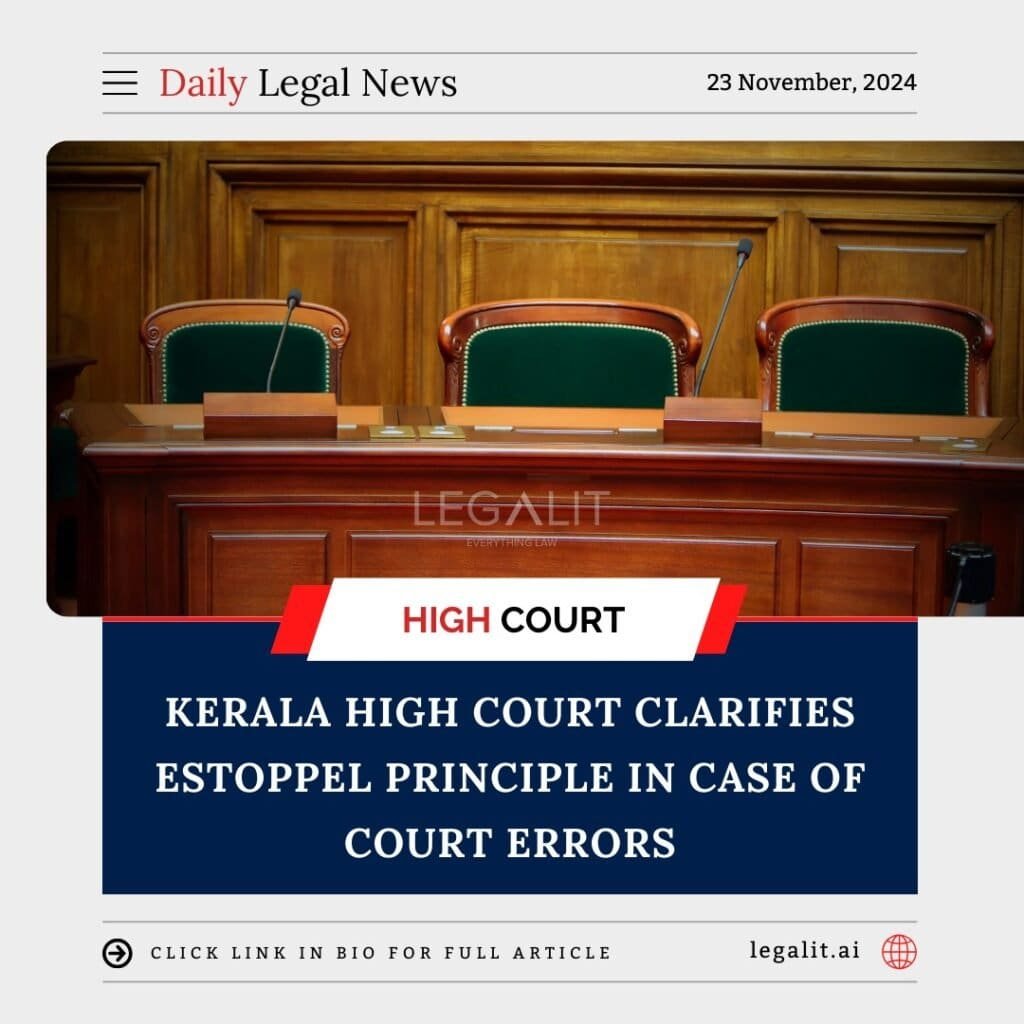
The Kerala High Court has ruled that the principle of estoppel cannot be invoked when a court needs to correct its own error. The judgment underscores the judiciary’s duty to ensure justice, even if it requires revisiting previous decisions.
Background:
The case involved a dispute where a party argued that the principle of estoppel barred the court from correcting an earlier order. Estoppel prevents a party from asserting something contrary to what has previously been established by their own actions or statements. However, the High Court was confronted with the need to rectify an error in its prior judgment to uphold the rule of law.
Court’s Rationale:
The court observed that estoppel is a principle rooted in equity and fairness, but it cannot be used to perpetuate judicial errors. It held that courts have an inherent responsibility to correct mistakes in their rulings, especially when such errors have significant implications for justice and the rights of the parties involved. The bench emphasized that the judiciary’s credibility depends on its ability to amend its errors.
Existing Measures:
Indian courts rely on procedural rules, such as review and curative petitions, to address errors in judgments. These mechanisms ensure that judicial mistakes are rectified without compromising the sanctity of earlier rulings.
Conclusion:
The Kerala High Court’s decision reaffirms the judiciary’s commitment to justice over procedural constraints. By clarifying that estoppel cannot override the need to correct judicial errors, the ruling sets a precedent for ensuring that fairness prevails in legal proceedings.